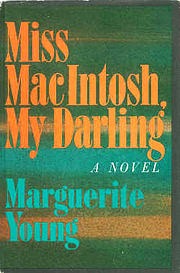I received an email from Gwen, a
former client, whose husband is battling cancer: “Chris is doing as well as can be expected –Cancer sucks. We’ve been
maneuvering our way through the subculture of the very sick and we’re doing
okay. It’s interesting how many
subcultures exist in the world and go unseen until circumstances just plop a
person right in the middle of a new world.”
I was struck by Gwen’s observation
on the “sub-cultures” we’re unaware of.
I actually think there really is no such thing as “the” real world. Whatever world you’re in is the “real” world
for you. The trick is to be able to navigate with ease and success through
several different “real” worlds.
I learned this from my college
mentor, Marguerite Young who wrote, “Miss MacIntosh, My Darling”, (fifth
longest novel written in English). I met
her when she was recuperating from cancer surgery. In our first conversation, she told me that
she never wore the same clothes twice.
She decided that if she masterfully disguised herself then maybe Death
wouldn’t recognize her. For a boy who
had grown up in a sheltered, Irish Catholic family, this was a head-spinning
concept!
Marguerite taught me not only to
not be afraid of people different from me, she taught me to actively seek out
people different from me. I was inspired
by her advice years later when I taught a public speaking class at LMU.
For one assignment, I divided the
class into groups of four. Each group
had to share a meal and the catch was that they had to prepare the meal as a
group – they couldn’t go to a restaurant or order out. They had to spend two hours together and couldn’t
have any electronic distractions, i.e. no cell phone, TV, radio, etc. Also, everyone had to tell a true story about
themselves.
Most students were annoyed, whining
that they didn’t have time to eat with a bunch of strangers and besides, what
did eating have to do with speaking in public?
When the groups shared their
experiences, though, the overwhelming majority couldn’t believe how eye-opening
the meal had been. Through conversation,
strangers realized that they had more in common than they thought. “Sub-cultures” had been shared and through
the sharing people seemed less “strange.”
Because people were no longer strangers, students felt more comfortable
speaking.
Next month I’m offering a workshop
on “Acting Techniques For Business Professionals.” A weekly assignment will require participants
to speak to someone at work they don’t know well and learn what they can about
the person.
The truth is – our world is only as
narrow as we make it. How many “real”
worlds are you a part of?!












